The Impact of Pet Ownership on Relationships: Strengthening Bonds and Enhancing Well-being
By Wilbert S
January 10, 2024 • Fact checked by Dumb Little Man

Pet ownership extends far beyond the realm of having a furry companion to cuddle with. Scientific research has unveiled the profound effects of owning pets on our lives and relationships. In this article, we will delve into the various ways pet ownership impacts relationships, both romantic and platonic. We will explore the emotional, psychological, and physiological benefits that come with having a pet, highlighting how they strengthen bonds and enhance overall well-being.
Pets as Social Catalysts
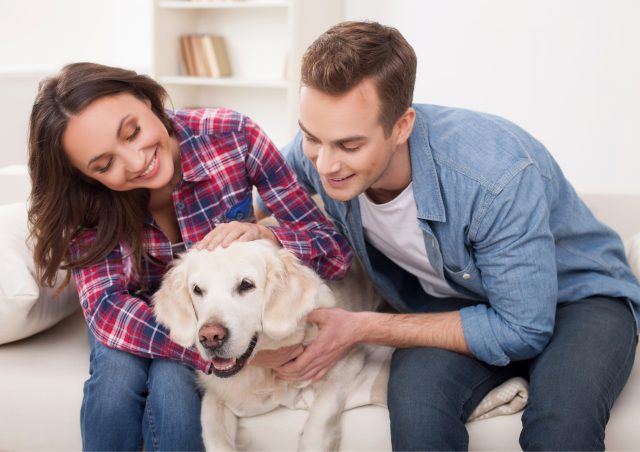
Breaking the Ice: Pets as Conversation Starters
Pets serve as exceptional conversation starters and icebreakers. Whether you’re walking a dog in the park or bringing your pet to a social gathering, the presence of a pet often prompts conversations and interactions with strangers and acquaintances. Engaging in conversations about pets creates a common ground and a shared interest, making it easier to initiate discussions and forge new connections. These interactions not only enhance our social skills but also expand our social networks, leading to a sense of belonging and increased social support.
Expanding Social Networks
Pet owners often find themselves engaging with other pet enthusiasts through various means, such as online communities, pet training classes, or local pet-friendly events. These shared interests provide a platform for building new friendships and expanding social networks. The connections formed with other dog and cat owners create a sense of community and camaraderie, as individuals come together to share their love for animals. These social connections can lead to long-lasting relationships and provide a valuable support system in various aspects of life.
Enhancing Romantic Relationships
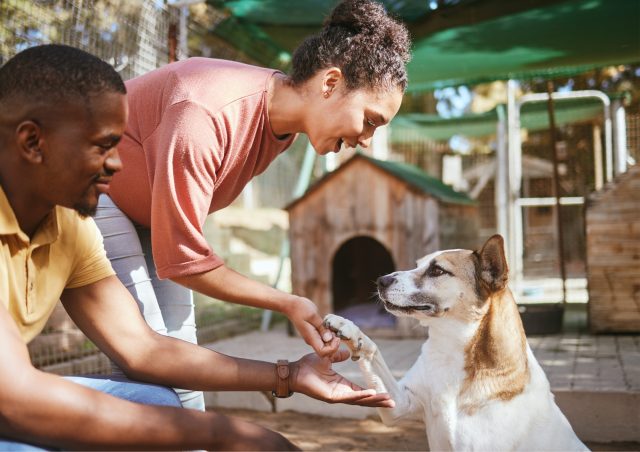
Shared Responsibilities and Bonding Opportunities
Caring for a pet together can profoundly strengthen a romantic relationship. Sharing responsibilities such as feeding, grooming, and training creates a sense of teamwork and cooperation. Couples who work together to meet their pet’s needs develop a deeper bond and a sense of shared purpose. The act of nurturing a living being strengthens the emotional connection between partners and fosters a sense of mutual support and understanding. The shared responsibility of pet care can also serve as a foundation for building strong communication skills and problem-solving abilities within the relationship.
Promoting Emotional Intimacy
Pets offer unparalleled emotional support and comfort, which can help couples navigate challenging times. The presence of a pet can be a source of solace and reassurance during stressful situations. Couples who care for a pet together often experience increased trust, empathy, and understanding within their relationship. The shared experience of loving and caring for a pet creates a unique emotional intimacy that strengthens the bond between partners. The unconditional love and companionship provided by a pet can help couples overcome conflicts and foster emotional connection and resilience.
Relationship Satisfaction and Stress Reduction
Research has shown that couples who own pets experience higher levels of relationship satisfaction and lower levels of stress. Pets provide companionship and a source of joy, which can help alleviate relationship conflicts and reduce stress. The unconditional love and non-judgmental nature of pets create a positive atmosphere within the relationship, fostering overall satisfaction and well-being. Additionally, the presence of a pet can serve as a buffer against the negative impact of daily stressors, providing emotional support and promoting relaxation.
RECOMMENDED DATING SITE | REVIEW | VISIT |
|---|---|---|
 | Top dating site with over 16 million active members. Free to Try! |  |
Strengthening Family Relationships

Teaching Responsibility and Empathy
For families with children, pet ownership offers valuable lessons in responsibility and empathy. Children learn to care for another living being, understanding the importance of meeting their needs and developing empathy towards animals and humans alike. The shared responsibility of pet care encourages teamwork and cooperation among family members, fostering a sense of unity and shared commitment. Children who grow up with pets often develop a greater sense of compassion and responsibility, which can positively influence their relationships with siblings, parents, and others.
Creating Shared Family Experiences
Pets become integral members of the family, participating in shared experiences and creating lasting memories. From family outings to playing together in the backyard, these moments strengthen the family bond and promote quality time spent together. Pets provide a common focus and shared interest, fostering a sense of togetherness and creating a positive and loving environment. Engaging in activities such as training, grooming, and playing with the pet encourages family members to interact and communicate, strengthening their relationships and building cherished memories.
Improving Mental and Physical Health

Reducing Loneliness and Depression
Pets offer companionship and unconditional love, which can help combat feelings of loneliness and depression. The presence of a pet provides a constant source of emotional support and stability, particularly for individuals living alone or facing mental health challenges. The bond formed with a pet can alleviate feelings of isolation and provide a sense of purpose and belonging. Pets offer a non-judgmental presence, creating a comforting and nurturing environment that promotes mental well-being.
Stress Reduction and Relaxation
Interacting with pets has been scientifically shown to reduce stress levels and promote relaxation. Activities such as petting, grooming, or simply being in the presence of a pet trigger the release of oxytocin, a hormone that promotes feelings of well-being and relaxation. Pets create a calming and soothing environment, helping individuals cope with the demands and pressures of daily life. The rhythmic motions of petting or the playful interactions with a pet can serve as a form of therapeutic stress relief, contributing to overall mental and emotional well-being.
Encouraging Physical Activity
Owning a pet, particularly a dog, encourages physical activity through daily walks, playtime, and exercise. Regular exercise not only benefits the pet’s health but also improves the owner’s physical fitness. Engaging in physical activity with a pet promotes a healthier lifestyle, which can have a positive impact on overall well-being. The shared activities between pet owners provide opportunities for outdoor exercise, cardiovascular fitness, and increased mobility. This active lifestyle contributes to reduced risks of obesity, heart disease, and other chronic conditions, benefiting both the physical and mental health of the owner.
RECOMMENDED DATING SITE | REVIEW | VISIT |
|---|---|---|
 | Top dating site with over 16 million active members. Free to Try! |  |
Pet-Assisted Therapy and Relationships
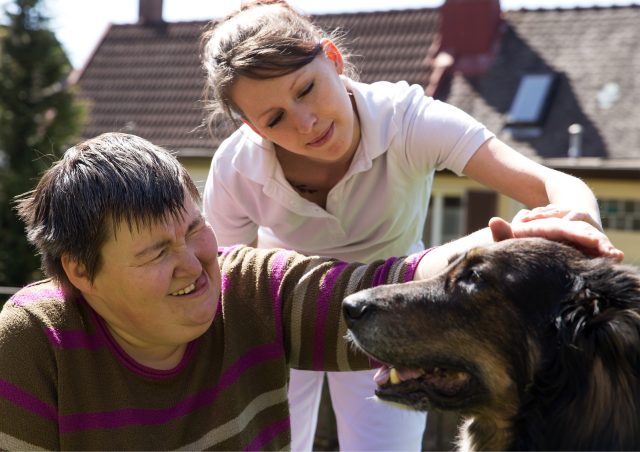
Pets can play a significant role in therapy settings, contributing to the improvement of relationships. Pet-assisted therapy, also known as animal-assisted therapy, involves incorporating animals into therapeutic interventions to enhance emotional healing, communication, and relationship dynamics. The presence of a therapy animal can create a safe and comforting environment, promoting trust and facilitating the expression of emotions. This form of therapy has been effective in couples counseling, family therapy, and even in supporting individuals with mental health challenges. The bond formed between the therapy animal and the participants can foster connection, empathy, and personal growth within relationships.
Pet Loss and Relationship Dynamics
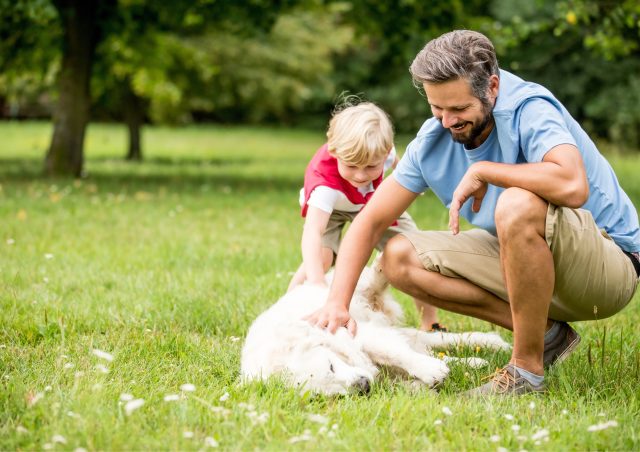
The loss of a beloved pet can have a profound impact on relationships. When a pet passes away, individuals and families may experience grief and emotional distress. The grieving process can affect relationship dynamics, as each person copes with the loss in their own way. It is important to acknowledge and validate the emotions of all family members during this challenging time. Navigating pet loss as a couple or family requires open communication, empathy, and support for one another. Grief counseling or support groups specific to pet loss can provide comfort and assistance in healing as a unit. Finding ways to honor the memory of the pet and keeping their legacy alive can also contribute to maintaining strong bonds within relationships.
Pet Ownership and Childhood Development
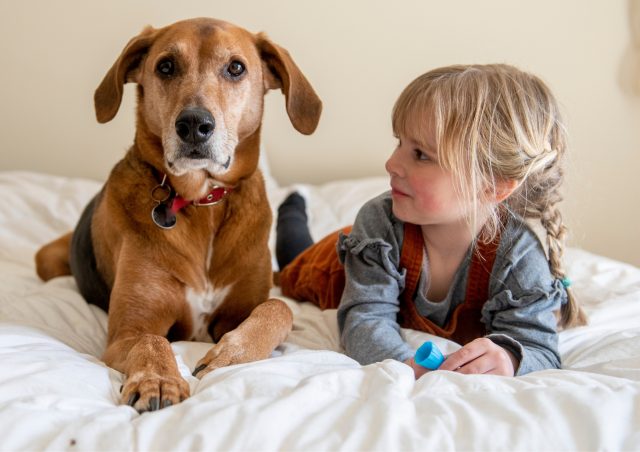
The influence of pet ownership on childhood development is noteworthy. Interacting with pets can have positive effects on children’s social, emotional, and cognitive development. Pets provide opportunities for children to learn empathy, responsibility, and nurturing skills. Caring for a pet instills a sense of accountability and teaches children about meeting the needs of another living being. Additionally, pets can contribute to a child’s emotional well-being, reducing anxiety and providing companionship. The bond formed between children and pets fosters a sense of love, trust, and loyalty, which can have a lasting impact on their future relationships and interactions with others.
Intergenerational Bonds and Pets
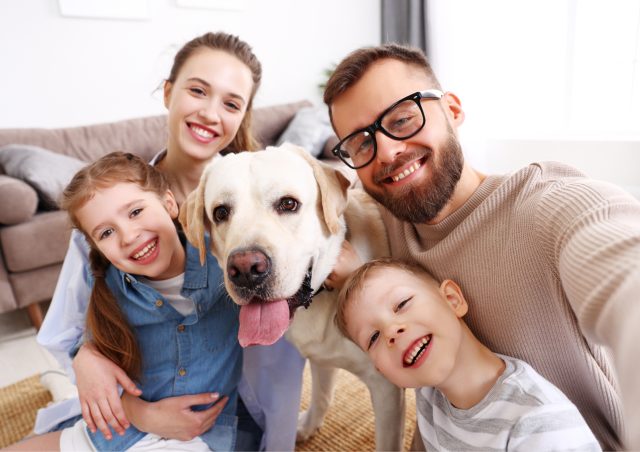
Pets can play a role in strengthening intergenerational relationships, such as those between grandparents and grandchildren. The presence of a pet creates a shared interest and a common ground for connection. Grandparents and grandchildren can bond over the care and companionship of a pet, creating meaningful experiences and memories together. Pets provide a source of unconditional love, bridging generational gaps and fostering mutual support. Interacting with a pet can encourage communication, understanding, and a sense of belonging among different generations, contributing to the strength of intergenerational relationships.
Conclusion
Pet ownership goes beyond the companionship and joy animals bring to our lives. It has a profound impact on our relationships, both romantic and familial, and enhances our mental and physical well-being. Pets serve as social catalysts, strengthening bonds and expanding our social networks. In romantic relationships, pets foster shared responsibilities, emotional intimacy, and overall relationship satisfaction. For families, pets provide opportunities for teaching responsibility and creating shared experiences. Additionally, pet ownership improves mental health by reducing loneliness, alleviating depression, and promoting stress reduction. It also encourages physical activity, leading to a healthier lifestyle.
In a world where connection and well-being are paramount, embracing the joy and responsibilities that come with owning a pet can truly enrich our lives and the relationships we hold dear.
FAQs The Impact of Pet Ownership on Relationships
How does owning a pet enhance romantic relationships?
Owning a pet can enhance romantic relationships in several ways. Firstly, sharing the responsibilities of caring for a pet fosters a sense of teamwork and cooperation, strengthening the bond between partners. Pets also provide emotional support and comfort during challenging times, promoting trust, empathy, and understanding within the relationship. The presence of a pet can reduce stress, increase relationship satisfaction, and create a positive atmosphere that contributes to overall well-being.
Can owning a pet improve family relationships?
Yes, owning a pet can improve family relationships. Pets provide opportunities for teaching responsibility and empathy, particularly for children. Caring for a pet together encourages teamwork and cooperation among family members, fostering a sense of unity. Pets become integral members of the family, participating in shared experiences and creating lasting memories. Engaging in activities with the pet promotes quality time spent together, strengthens the family bond, and creates a positive and loving environment.
How does pet ownership impact mental health?
Pet ownership has positive impacts on mental health. Pets offer companionship and unconditional love, reducing feelings of loneliness and providing emotional support. The presence of a pet can alleviate symptoms of depression and anxiety. Interacting with pets has been shown to reduce stress levels, promote relaxation, and trigger the release of hormones that enhance well-being. The bond formed with a pet can contribute to a sense of purpose, belonging, and overall mental well-being.
Can owning a pet lead to improved physical health?
Yes, owning a pet can lead to improved physical health. Dogs, in particular, encourage physical activity through daily walks, playtime, and exercise. Regular exercise with a pet promotes a healthier lifestyle and increases physical fitness. The active lifestyle associated with pet ownership can reduce the risks of obesity, heart disease, and other chronic conditions. Engaging in physical activity with a pet not only benefits the pet’s health but also enhances the owner’s physical well-being.
Wilbert S
Wilbert is an avid researcher and is deeply passionate about finance and health. When he's not working, he writes research and review articles by doing a thorough analysis on the products based on personal experience, user reviews and feedbacks from forums, quora, reddit, trustpilot amongst others.




